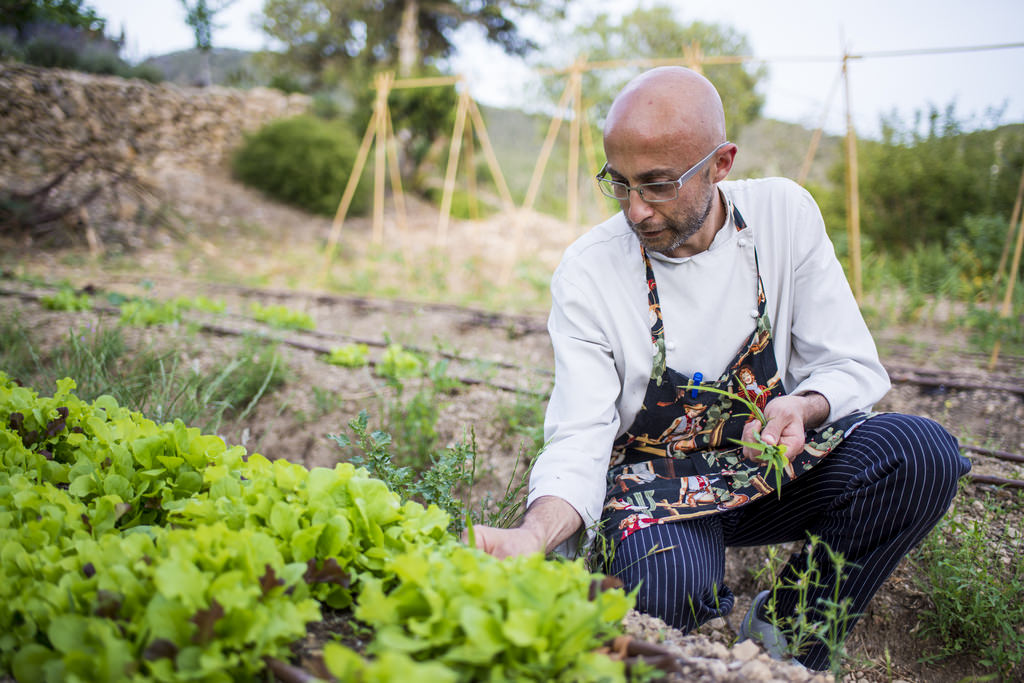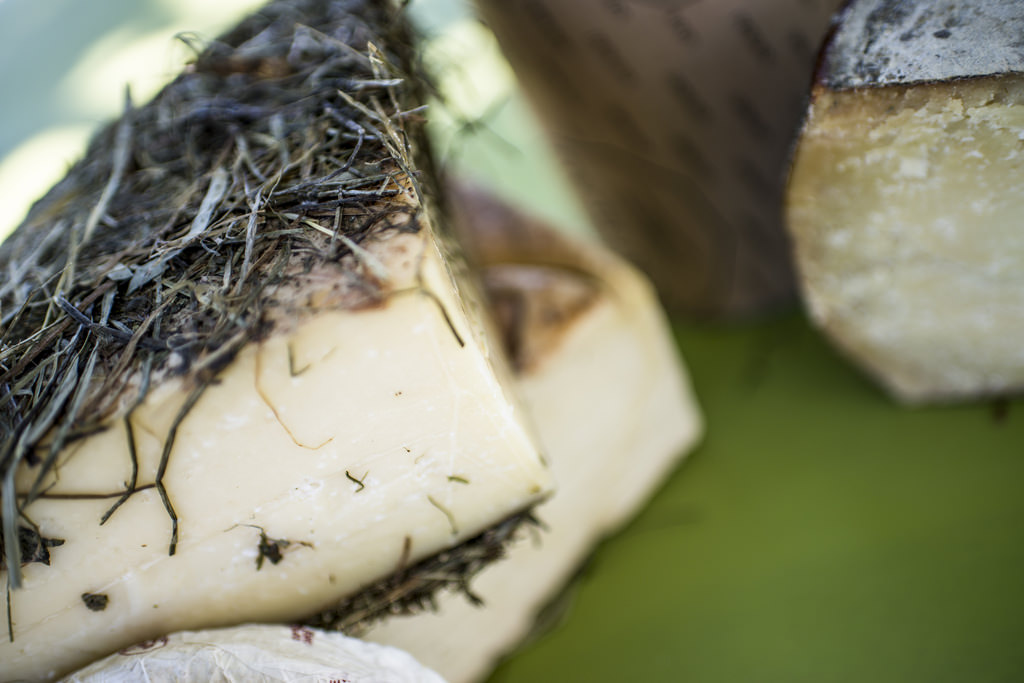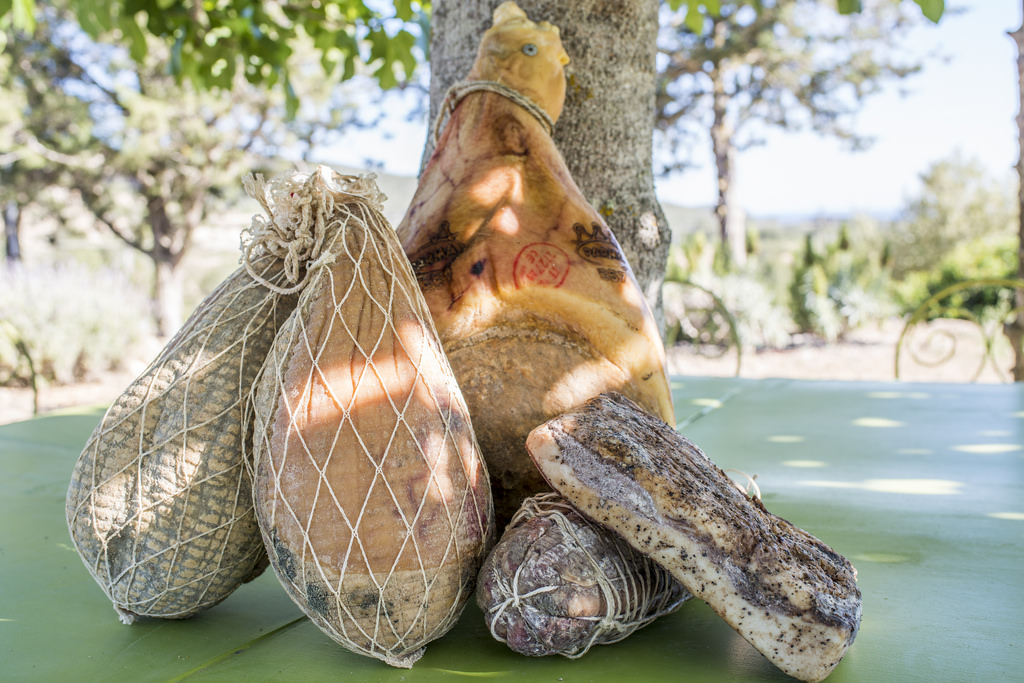During the winter months Can Domingo chef-patron, Giuseppe Vivacqua, hires a van and tours Italy in search of the best producers the country has to offer.
During the winter months Can Domingo chef-patron, Giuseppe Vivacqua, hires a van and tours Italy in search of the best producers the country has to offer. He passes by cheese makers, rice growers, flower gardens, vineyards, seed stores and salumerias (Italian delicatessens). Along the way, while he tastes and tests, he’s also thinking; of what dishes to create with the wonderful produce he comes across.
Last year Giuseppe’s main mission was to source a certain type of rice. He needed just the right kind to use in risotto and no other product would do. After testing several grains he decided on a small producer in the nature reserve of Baraggia (Piedmont region). The rice paddies in this region are flooded with pure waters from the Alps. The utmost care is taken during harvesting so that not a single grain is broken and the farmer, proud of his heritage, still uses traditional methods and eschews marketing of any kind. Beppe – as he’s known – brought back 180 kilos of this rice last winter, all of which have been eaten by hungry and contented diners. This year they will bring back more in order to satisfy the demand.
Obviously, cheese plays an enormous part in Italian cuisine – from soft gratings over pastas to wooden boards groaning under the weight of tasty morsels. An Italian meal without cheese is like a sky without sun. Can Domingo source their cheese from Giolito Formaggi in the town of Bra. This family-run company has been in the cheese business since the turn of the 20th century. They source and age the best cheese the province has to offer. Good cheese takes time and a lot of care so it’s no surprise then that Giolito Formaggi are heavily involved in the ‘Slow Food Movement’ which has its headquarters in this small Piedmont town. Of course, Beppe has sampled and approved every single cheese used in the kitchen from the strong willed pecorino romanos and the softer pas chére to the extremely rare and specialised cheeses which will be matched with truffles in September.
Every single food item comes in grades, just like wines. It’s the same with anchovies. There is a special place in Cetara between Napoli and Salerno where these little fish congregate. The local tradition is to preserve them in layers of salt. This process creates a jus called Colatura di Alici that was once a prize ingredient in Etruscan cuisine. Today, Can Domingo uses these delicate anchovies to add depth of flavour to several dishes. The restaurant’s version of Pasta Con Le Sarde, a Sicilian dish typically made with sardines, employs the many-layered flavours of the Colatura de Alici.
Of course, no Italian meal is complete without cured meats. Can Domingo sources a selection of exquisite meats, some better known than others. Culaccia from Piacenza, which is made from same section of pork as culatello but is seasoned as a Parma ham. Guanciale, which is very similar to bacon but made from pork neck making it very sweet, is traditionally used in Carbonara but Beppe uses it to wrap around roast lamb so it melts into the meat. When the kitchen team unpacked the ciccioli, a top to tail meat a lot like a mortadella but purer, they thought it would only appeal to their Italians customers but the eight kilos they brought in was gone within two weeks.
The journey across Italy to source all of these delicious ingredients is like stepping on to a magical fantasy bus. It’s no wonder Beppe enjoys the winter as much as he does his summers at Can Domingo.






